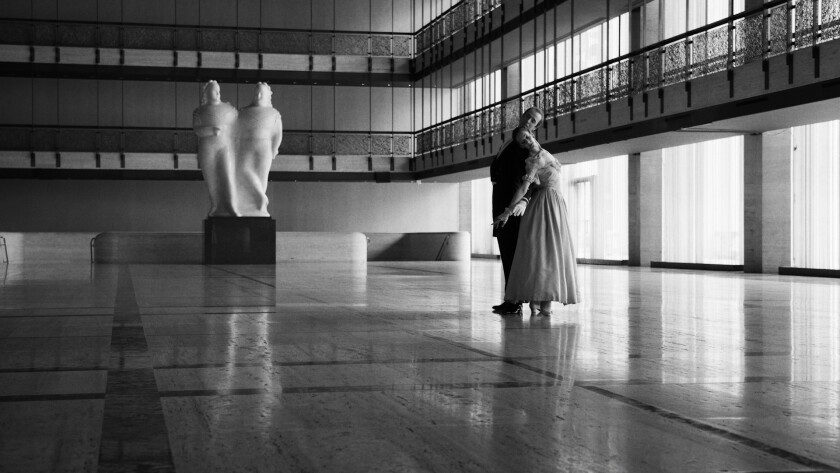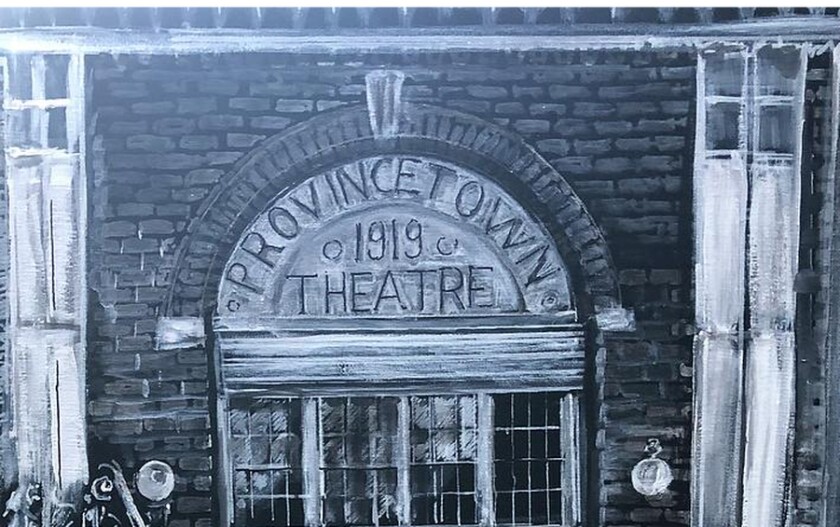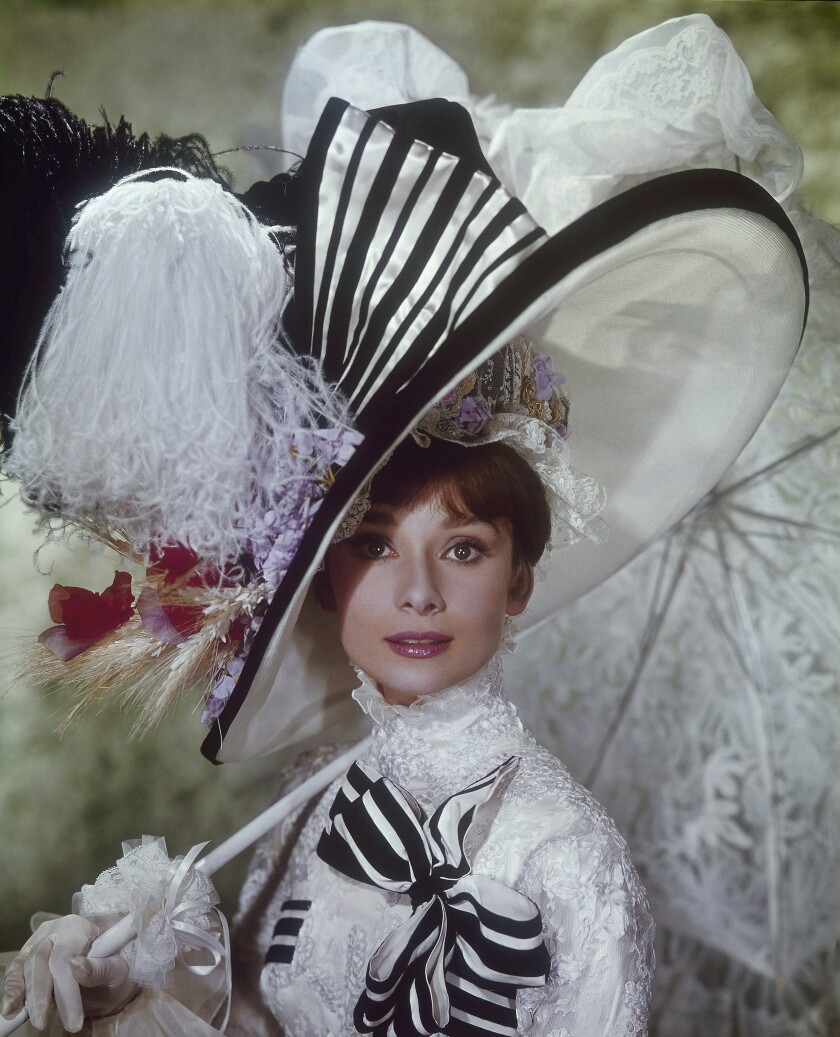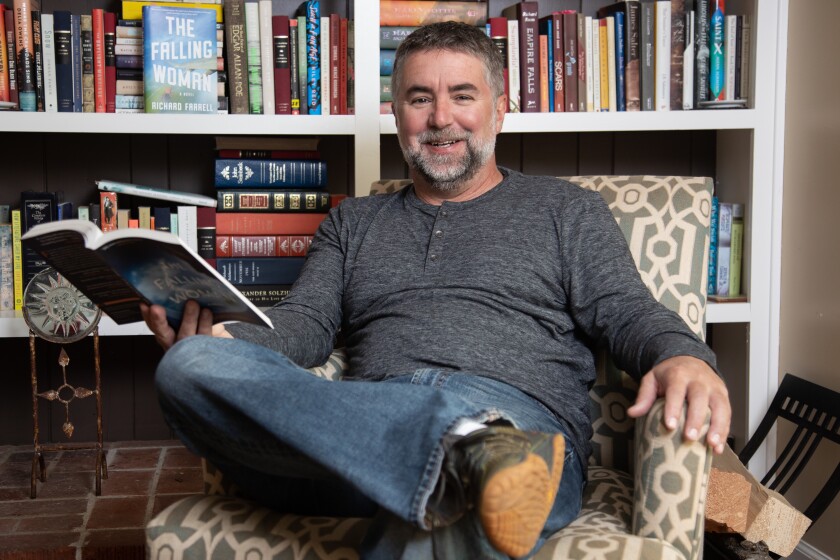Good morning, and welcome to the U-T Arts & Culture Newsletter.
I’m David L. Coddon, and here’s your guide to all things essential in San Diego’s arts and culture this week.
Among the films to be screened during the first-ever San Diego International ShortsFest is “The Roads Most Traveled,” an emotionally involving 24-minute retrospective of the work of photojournalist Don Bartletti.
Bartletti spent 40 years in a distinguished career that took him from the Vista Press, to the bygone Oceanside Blade-Tribune, to the then-San Diego Union and eventually to the Los Angeles Times, where he would win a Pulitzer Prize for his photojournalism in 2003.
The focus of “The Roads Most Traveled,” directed by Palomar College’s Bill Wisneski, is Bartletti’s visual documentation of the migration of Central Americans to the U.S. This includes a harrowing and heartbreaking experience riding atop freight cars bound for El Norte with his camera and little else, “an assignment,” Bartletti says in the film, “that changed my career.”
Nothing I write here can do justice to the power and poignancy of Bartletti’s photographs, both black and white and color. “The Roads Most Traveled” is a documentary that must be seen, absorbed, contemplated.
“I want people to realize that I have a soul and an obligation to record historic days in the history of our country, in some ways in the history of humanity,” says Bartletti. “Migration for survival is as old as humanity. It’s never going to stop. People will not perish.”
“The Roads Most Traveled” is among more than 100 films under 30 minutes in length that will be screened virtually during the San Diego International Film Festival’s ShortsFest, which opens tomorrow and runs through Sunday. Filmmaker panels are also part of the festival. Tickets are $29 per day or $79 for a three-day pass.
Dance

Maria Kowroski and Ask la Cour in an excerpt from George Balanchine’s “Liebeslieder Walzer,” part of New York City Ballet’s 2021 Spring Gala film directed by Sofia Coppola.
(Courtesy photo by Philippe Le Sourd)
For the first time since the COVID-19 pandemic shut down the company, dancers of the New York City Ballet performed on their resident stage inside Lincoln Center’s Koch Theater. The joyous experience was captured on film by director Sofia Coppola as a presentation of NYCB’s Spring Gala.
The half-hour performance was choreographed in part by the company’s Justin Peck, who grew up in San Diego. Twenty-two dancers participated, with the accompanying music of Brahms, Mozart, Chopin, Stravinsky and Samuel Barber played by the NYCB Orchestra.
Coppola’s directorial hand is an artistic if heavy one in this film, which can be streamed free through May 20. The early portions are shot in black and white in rehearsal spaces and in Lincoln Center’s high-windowed promenade. Shadows and light are integrated with the dancers’ variously studied and vibrant movements.
For the triumphant return to the Koch stage, Coppola switches to color, a rather expected metaphor for reawakening. But the closing moments backstage with the company dancers embracing each other is a fitting grace note. We feel their relief and their exultation.
Theater

Point Loma Playhouse’s free streaming, “A Provincetown Retrospective.”
(Courtesy)
Short works seem to be the day’s theme, so in keeping with that, performances of Eugene O’Neill’s “Before Breakfast” and a portion of Edna St. Vincent Millay’s “Aria da Capo” comprise Point Loma Playhouse’s free streaming, “A Provincetown Retrospective.” The Provincetown Playhouse in Greenwich Village was a haven for playwrights including O’Neill and Millay in the early 20th century.
The two performances were recorded in the Zoom format, the first (“Before Breakfast”) a monologue starring Doris Salois and the second (“Aria da Capo”) co-starring Rhys Greene and Byron La Due. After a year of theaters locally and beyond at least trying to produce outside of this restricted technology, it’s difficult to remain patient with these two shorts, ably performed though they are. But if you invest the time, do stick with them. Both have endings that you will not have seen coming.
Streaming

Audrey Hepburn appears as Eliza Doolittle in “My Fair Lady,” 1964.
(ASSOCIATED PRESS)
I’ve got a weakness for those celebrity documentaries on Netflix, and I’ve enjoyed a bunch of them over the past year: a revealing three-parter on Frank Sinatra; a downhome charmer on Dolly Parton; a warts-and-all portrait of Quincy Jones. So of course I couldn’t resist “Audrey: More Than An Icon” about Audrey Hepburn.
I should have resisted. It was enlightening to learn about Hepburn’s ambivalence about stardom and, more so, about the dark political proclivities of her father. And it was certainly fun to see clips from “Breakfast at Tiffany’s” and “Roman Holiday.” But “Audrey” is flawed documentary filmmaking (Helen Coan is the director). Footage and backstory on some of her best films, including “The Nun’s Story,” “Two for the Road” and “Charade,” are absent. Even “Breakfast at Tiffany’s” is treated more like a fashion vehicle than for its substance. But what bothered me the most is the frequent incorporation of stagey dramatizations of the little girl Audrey or the wannabe-ballerina Audrey. Isn’t Audrey Hepburn’s life dramatic enough without “help” from contrived scenes starring unknown actors?
Film
For the second consecutive year, the GI Film Festival San Diego will be presented virtually, beginning on Tuesday. Individual tickets for the 15 screenings of 38 films are $10. A five-pack goes for $40 and an all-access pack is $125. The festival runs through May 23.
Visual art
There’s still time to check out “Oil Painters of America: 30th National Juried Exhibition,” which ends its run Sunday at the California Center for the Arts, Escondido. More than 250 pieces — all for sale — were brought to Escondido for the exhibition. The exhibition — a portion of the proceeds will benefit the center — is the center’s first exhibition of 2021 that’s open to the public. Tickets range from $6 to $12, with those under 18 admitted for free.
Books

Author and creative writing teacher Richard Farrell
(Jarrod Valliere/The San Diego Union-Tribune)
When the title character of Richard Farrell’s debut novel, “The Falling Woman,” survives a plane crash, she lands on an epiphany. Farrell knows how that feels. The epiphany part, anyway.
In the case of the fictional Erin Geraghty, the change of heart comes when the plane that is supposed to take her from Washington, D.C., to San Francisco explodes in midair. Everyone on the plane dies except for Erin, who uses her second chance to rethink her whole life.
In the case of the man who created Erin, the miracle also happened in midair. In 1992, the Massachusetts native had begun Primary Flight Training at the U.S. Navy’s flight school in Pensacola, Fla., making good on his childhood dream of becoming a pilot. But after he had an epileptic seizure during training, Farrell was told he would never be able to fly again.
By the end of that day, the life Farrell had envisioned for himself was over. He was 23 years old and as lost as he would ever be.
Read more about Farrell in this story by the Union-Tribune’s Karla Peterson.

Author Eric Nguyen and his new book, “Things We Lost to the Water”
(Courtesy photo by Tim Coburn)
Meanwhile, Peterson also wrote about another author: Eric Nguyen, whose new book is called “Things We Lost to the Water.” She writes:
Writing what you know is one way to tackle your first novel, but it wasn’t Eric Nguyen’s way. When he started working on “Things We Lost to the Water,” Nguyen was a lot more interested in writing about the things he didn’t know and the things he wanted to know better.
He wanted to explore the Vietnamese community in New Orleans, a city the Maryland native came to love when he attended McNeese State University in Lake Charles, La. He wanted to imagine what it would be like for the Americanized son of Vietnamese refugees to visit the faraway country that shaped his childhood.
But more than anything, Nguyen wanted to explore what his parents’ life in Vietnam might have been like before they fled the country in the late 1970s. And he wanted to understand why they left.
He didn’t live the lives of his characters, but writing “Things We Lost to the Water” helped him learn from them.
Read more here.
UCTV
University of California Television (UCTV) is making a host of videos available on its website during this period of social distancing. Among them, with descriptions courtesy of UCTV (text written by UCTV staff):
“Terry Allen’s Trees — A Conversation with Stuart Collection”: Legendary painter, conceptual artist, composer, raconteur extraordinaire and all-around Renaissance man Terry Allen joins Stuart Collection’s Mary Beebe and Mathieu Gregoire for a wide-ranging exploration of the history and methods of creating “Trees,” his installation for the collection. Allen’s fascination with trees is understandable in someone growing up in Lubbock, a place “so flat that if you stare at the horizon hard enough you can see the back of your head.” Other topics include comments about Allen’s public artworks that followed that initial commission, his thoughts about the contemporary art scene, artistic influences, and his latest album, “Just Like Moby-Dick.”
“Free and Fair Elections: Lessons for the U.S. from the Rest of the World”: The turmoil surrounding the 2020 presidential election has shaken the confidence of many American citizens in our electoral process. A natural response is to ask: Is there a better way to conduct free and fair elections? With more than 100 democracies currently in the world there are potentially many examples of how we might improve our elections. UC Berkley’s Goldman School of Public Policy brings together a distinguished group of experts to examine election security from an international perspective focused on Brazil, India and Sierra Leone.
“Altered States of the Human Mind”: The adjective “psychedelic” is defined as a mental state of intense sensory perception, sometimes accompanied by severe perceptual distortions and hallucinations and by extreme feelings of euphoria or despair. Since the counterculture popularization of the use of LSD, peyote, Ecstasy, and other psychedelic drugs, deliberately induced altered consciousness has remained a controversial subject for scientific research. In this program experts Frederick Barrett and Jean-Pierre Changeux discuss what is known about the origins and mechanisms of mind-altering drugs and practices, and how they may contribute new insights into the origins and workings of the human mind.
Arts in the Time of COVID

City Ballet San Diego closes its season with “Raymonda,” available on demand through May 23.
(Courtesy photo by Anna Scipione)
In this week’s edition of Arts in the Time of COVID, Pacific editor Nina Garin talks about City’s Ballet’s “Raymonda,” the Athenaeum Music & Arts Library’s “Marking Time” exhibit and P.O.D. at Petco Park. Watch it here.
